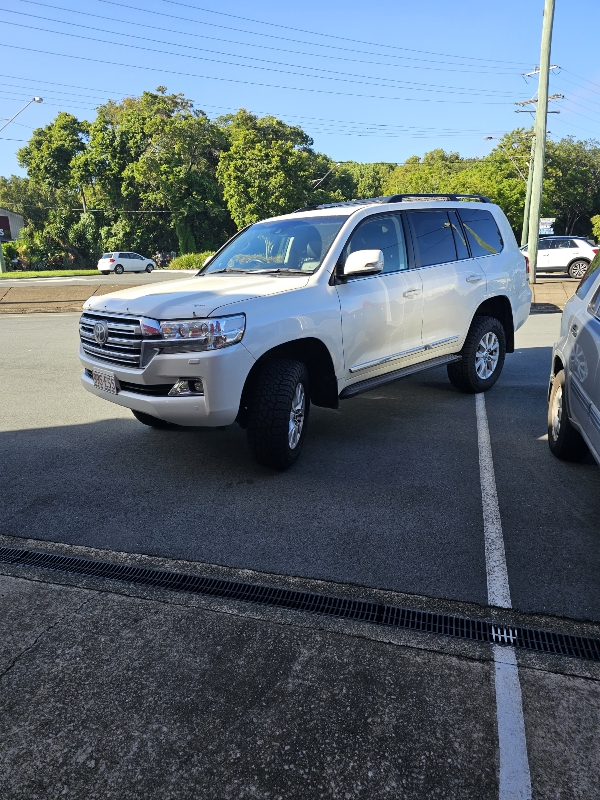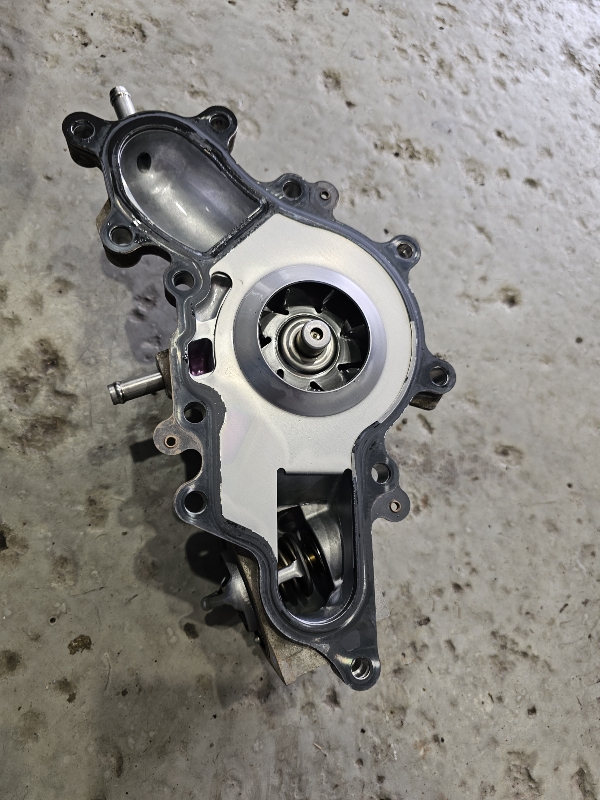200 Series Landcruiser water pump
At Power Curve Automotive, we’re dedicated to providing thorough and comprehensive service inspections to ensure your vehicle’s health and longevity. Recently, during a routine inspection of a 200 series LandCruiser, our diligent technician detected a subtle yet potentially serious issue: a leaking water pump. In this blog, we’ll delve into the significance of the water pump, its role in your vehicle’s cooling system, and why timely replacement is crucial for maintaining optimal performance and preventing costly damage.

But what is a water pump??
The water pump is a vital component of your vehicle’s cooling system, responsible for circulating coolant (antifreeze) throughout the engine to regulate temperature and prevent overheating. Located near the front of the engine, the water pump is typically driven by a belt or chain connected to the engine’s crankshaft. Its primary function is to continuously circulate coolant from the radiator to the engine and back, dissipating heat generated by combustion and maintaining the engine at an optimal operating temperature.
THE ROLE OF THE WATER PUMP
Cooling: The water pump plays a central role in the cooling process by continuously circulating coolant through the engine and radiator. As coolant absorbs heat from the engine, it flows through the radiator, where it is cooled before returning to the engine to dissipate more heat. This cycle helps regulate engine temperature and prevent overheating, ensuring smooth and efficient operation.
Lubrication: In addition to cooling, the water pump also serves a secondary function of lubricating the water pump shaft and bearings. By continuously circulating coolant through the pump housing, the water pump helps minimize friction and wear on internal components, extending its lifespan and ensuring reliable performance.
The Importance of Timely Replacement
While water pumps are designed to be durable and long-lasting, they are not immune to wear and tear. Over time, the pump’s seals, bearings, and impeller may degrade due to factors such as age, mileage, and exposure to coolant contaminants. A leaking water pump can lead to coolant loss, reduced cooling efficiency, and ultimately, engine overheating and damage if left unaddressed.
Detecting Water Pump Issues
Detecting water pump issues can be challenging, as leaks may not always be visible or reach the ground. However, common signs of a failing water pump include:
- Coolant leaks or puddles under the vehicle
- Engine overheating
- Coolant loss or low coolant level
- Grinding or whining noises from the water pump area
- Visible corrosion or rust on the pump housing

